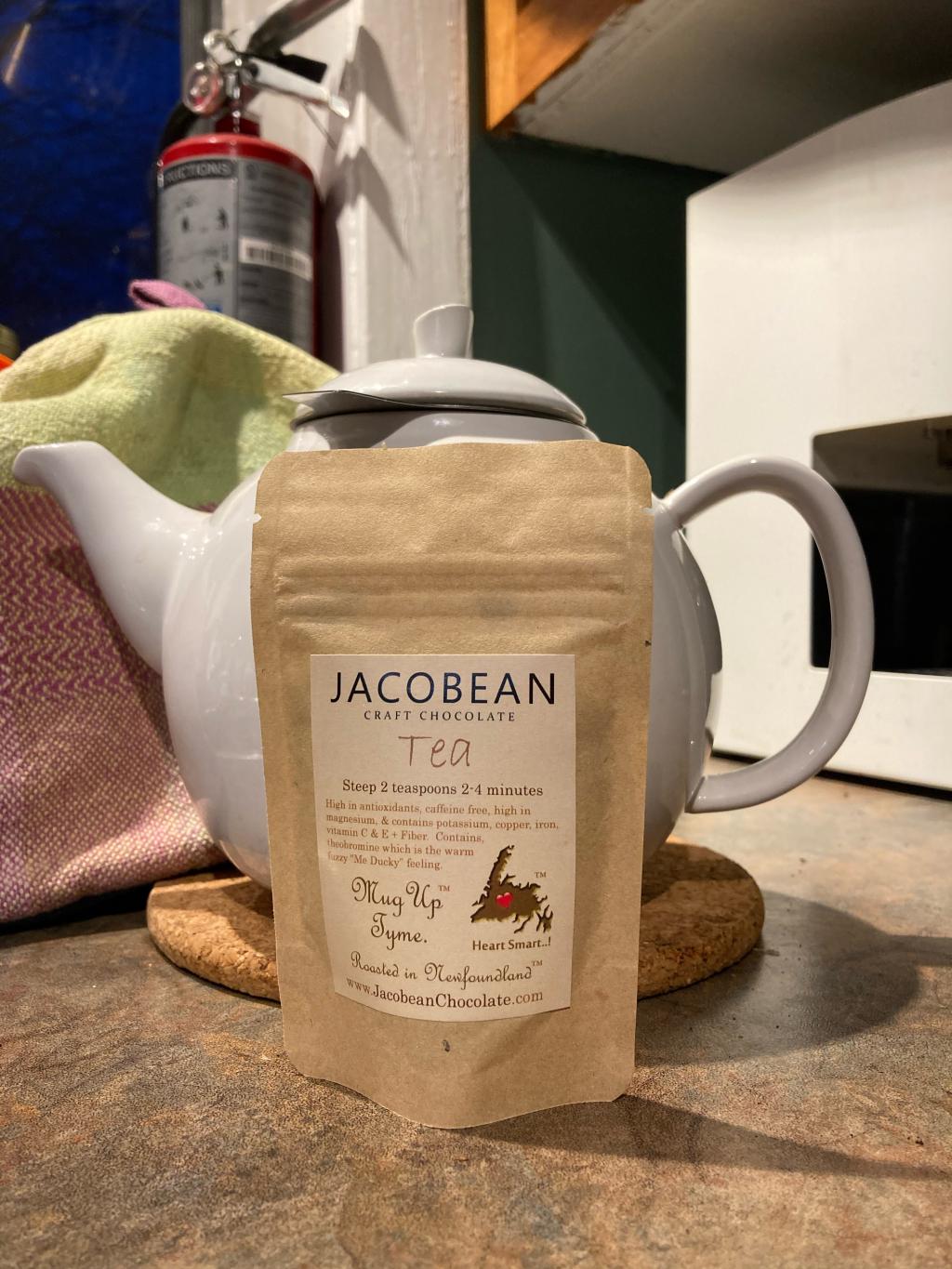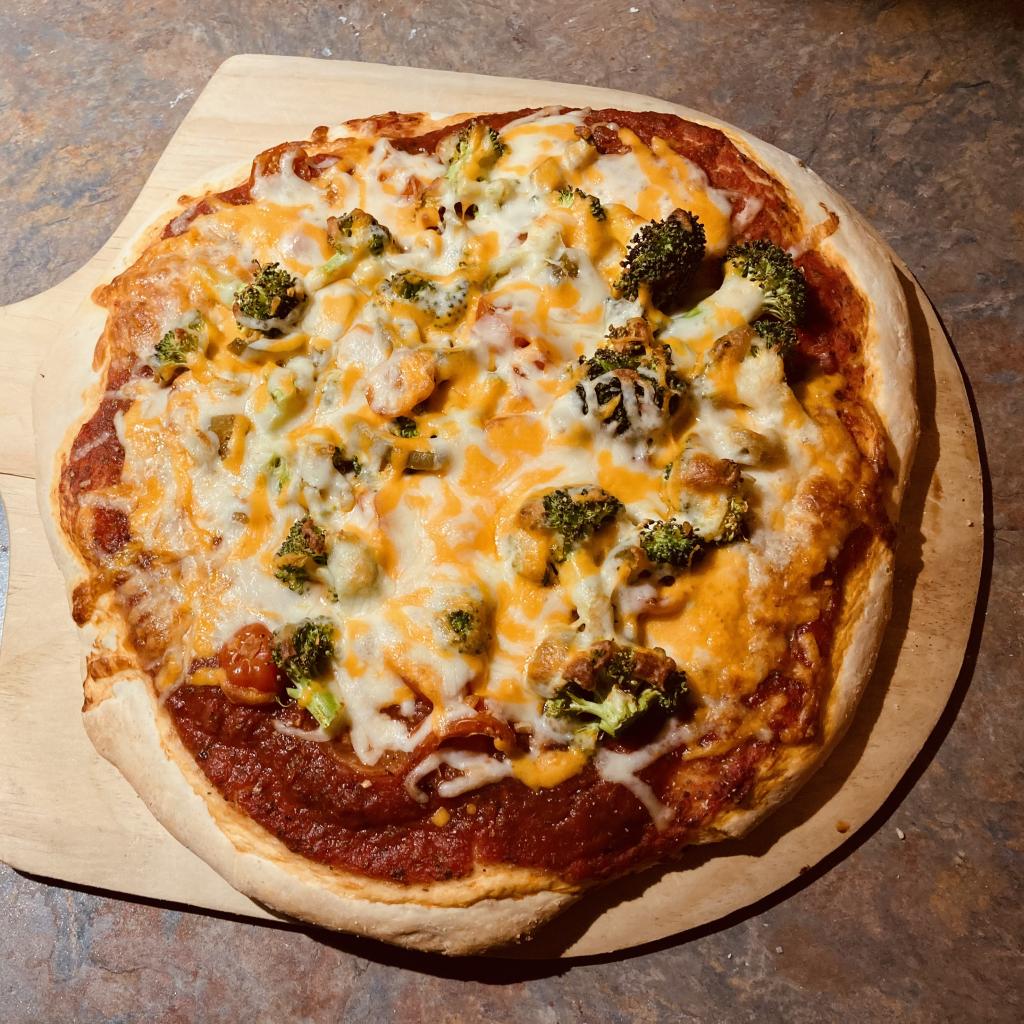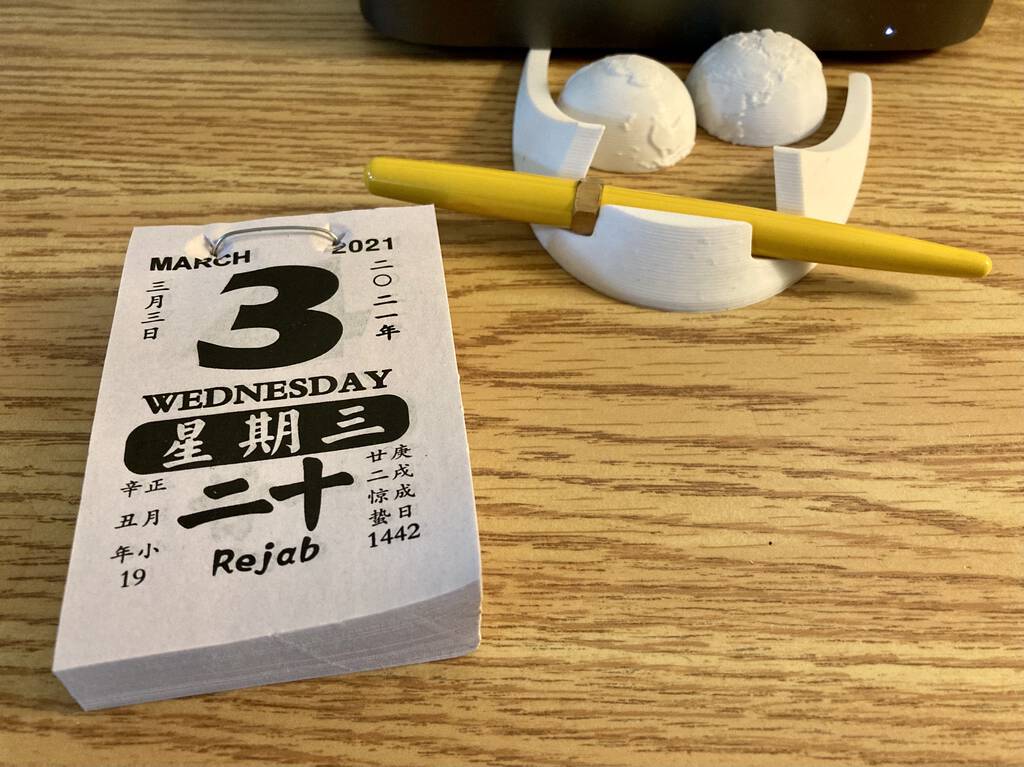I have taken great comfort from attending the monthly grief support group sessions offered by Hospice PEI. As Catherine was living with cancer, and my thoughts would turn toward how I would live on afterward, it never occurred to me that the company of other people, united by grief, would be part of it; if my thoughts did turn to such things, more often than not I would picture myself running as fast as I could the other direction.
I wrote to a friend this week that a year ago I was acting as though I could “treat grief like it was an extracurricular course that I could skip,” and that I was “acting like I was some great exception to the rule of how these things work.” Later I wrote to my family that last spring it felt like I was “trying to outrun grief.” And both were true: the template I had for grieving was all about “moving on” or “powering through,” and I truly did think, in my heart of hearts, that if I buckled down hard enough I could skip the usual grieving rigamarole and get on with life.
I was wrong.
And, fortunately, in mid-May I came to my senses, and reached out for support. I stopped running.
In the months since I’ve found support in many different places in addition to the grief support group: from Oliver, from my mother, from my brothers, from friends, from my psychologist, from my social worker, in talking to others who are grieving, in podcasts and books, and, mostly recently, on Facebook. Through all this my conception of grief has changed completely from “something I need to power through” to “a new part of who I am and always will be.”
That’s a hard thing to write in a way that doesn’t make it sound like “I will now and forever be sad,” especially if, as I once did, you think of grief and sadness as synonyms. What I mean by it is that I have been cracked open in a substantial and undeniable way, and that crack–a wound is one way of thinking about it–will always be with me. But the wound need not be disabling, and the wound need not lead me to being stuck, or being jaded or being depressed (although, no doubt, it can, and I’ve felt those tugs as much as anything else I’ve felt).
All of which leads me to men.
Although the monthly grief support group is open to all, and although there have certainly been other men who’ve attended by times, they have, especially recently, been few and far between. On a personal level this doesn’t interfere with the effectiveness of my attending, as long as I remember to listen mindfully and to stanch my natural inclination to fill silences (the “promise” that’s read at the beginning of every session is so helpful, in part, for its role in that reminding). But every time I find myself as the only man in a support group I cannot help but worry about the other grieving men, my brothers-in-grief, and whether they might be stuck where I was, trying to power through.
I am afraid for them, and I am afraid for those around them, because I’ve learned enough to understand that grief ignored, grief bottled, grief contained, grief powered through, has the power to leak or explode in harmful, dangerous ways.
Everyone’s grief is different and we each need to find the path that works for us; there’s no way to prescribe a universal path, a universal timetable, a universal result. But I have been well trained by my lifetime growing up in western society that, as a man, my emotions are to be constrained and managed, that admitting fallibility is weak and to be avoided at all costs, that anyone atypical needs to be culled from the social herd, that self-reliance is noble, and asking for help is something you only do when the water is well and truly pouring through the roof. If even then.
I am so grateful that I am finding my way through this in a way that allows me to be mindful of that education-in-masculinity and to start to unpack it. In this I owe a great debt to Oliver, who we tried so hard to raise with that mindfulness, and who’s atypicalness, fortunately, extends to his regard for gender; to my trans and gender-non-binary friends who’ve shared profound insights into what they’ve learned as they’ve confronted the world on their terms; to the women I’ve listened to and shared with around the grief support table who’ve said, beyond anything else “we see you there, it’s okay.”
All I can do in the face of this, knowing what I’ve learned, is to write about my own path with hopes that it will, at least a little, open up the atlas of what’s possible for others that follow on.
I missed in January that The Peter and Oliver Podcast passed its 15th anniversary.
I have hundreds and hundreds of photos of Oliver over the last 20 years, but none captures as much of him, and of us, as these audio snapshots of our life.
Remember the Jacobean Cacao Husk Chocolate Tea that I mentioned in November? Well it’s back in stock at Riverview Country Market after a long time out of stock.
“You got more of the Jacobean tea in stock!”, I exclaimed yesterday.
“Yah, we brought it in mostly for you,” my smiling cashier revealed.
So I feel an extra responsibility to encourage you all to pop out and buy some. It’s not cheap, but it is the perfect cold-winter-night drink.

If you’ve got a spare hour this weekend, you could do worse than listening to the first hour of the last Morningside. I remember it like it was yesterday, in part because I listened to it with Catherine and her parents while stuck in an hours-long traffic jam en route to the opening of the Confederation Bridge.
Receiver Brass Shop, understandably given the snapbacks and lockdowns, cancelled Thursday Pizza Pasta tonight, throwing the responsibility for pizza provision back to me. This pizza fought me all the way, but, somehow, it all worked out.

On Zoom this afternoon I talked about my 2019 The Government That Swallowed a Pond presentation with Josh MacFadyen’s geospatial humanities class at the University of PEI.
When Josh introduced me, he referred to me as “Friend to the Humanities,” which I thought a lovely way of describing my relationship to academia. I may have to produce business cards with that title.
Josh and his students were uncommonly engaged, and we had as much discussing as I did presenting; I enjoyed that.
We emerged from “Modified Code Red” into what I keep referring as “snapback,” but is actually called “circuit breaker,” and I used the opportunity to get a haircut. It had been 104 days since the last one.
Every haircut I emerge looking just a little bit more like my mother’s father; as he was among the gentlest people I’ve ever known, I focus on the hope that I inherit his demeanour as well as his widow’s peak.

As part of an orgy of stationery buying from Sumthings of Mine in the late fall, I acquired a Chinese Mini Traditional Calendar:
Palm-size Chinese lunar traditional for the 365 days of the year!
Lunar calendar (农历) is a great creation with its inventions of the intercalary month and the 24 solar terms. It is still used for marking traditional East Asian holidays such as the Chinese New Year, the Duan Wu Festival, Mid-Autumn Festival, Winter Solstice Festival and many more. In astrology, it is used for choosing the most auspicious date for a wedding or the opening of a building.
This calendar is a tear off calendar, which you could tear down each page day-by-day easily. After tearing the pages off, you could store them on your pages, or use them to adorn your outgoings or any collage artworks.
All that in a single calendar!

I’m still sorting out what each part of each day’s markings mean:
- The characters under WEDNESDAY are Wednesday in Chinese.
- Rejab is the seventh month of the Islamic calendar.
- It’s the year 1442 on the Islamic calendar, which appears in the bottom right.
- The 19 in the bottom left is the age of the Moon.
If you know more than that, please let me know.
(In the background: a newly-acquired Ferris Wheel Press fountain pen sitting in a 3D printed phone holder and two halves of a 3D printed Earth).
Romesh Ranganathan’s BBC show, Romesh: Talking to Comedians is the anti-Seinfeld you might be looking for.
 I am
I am